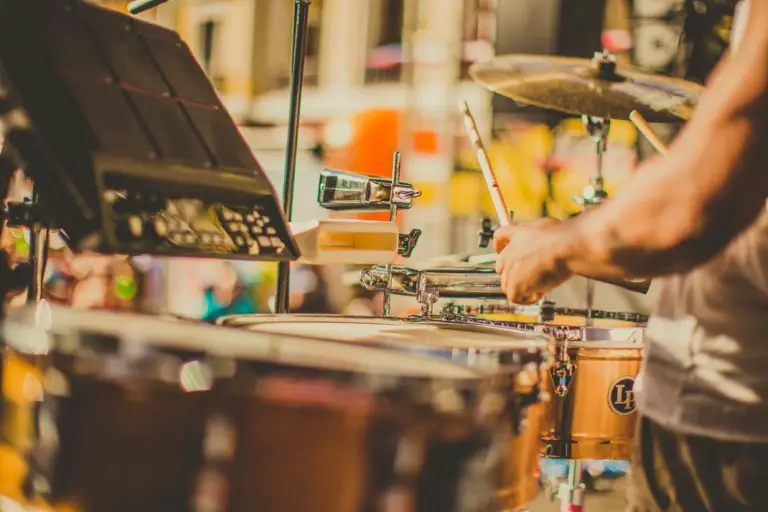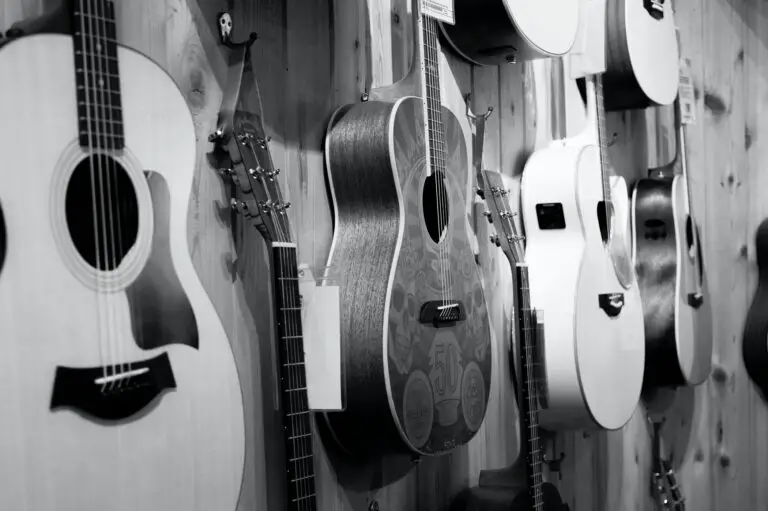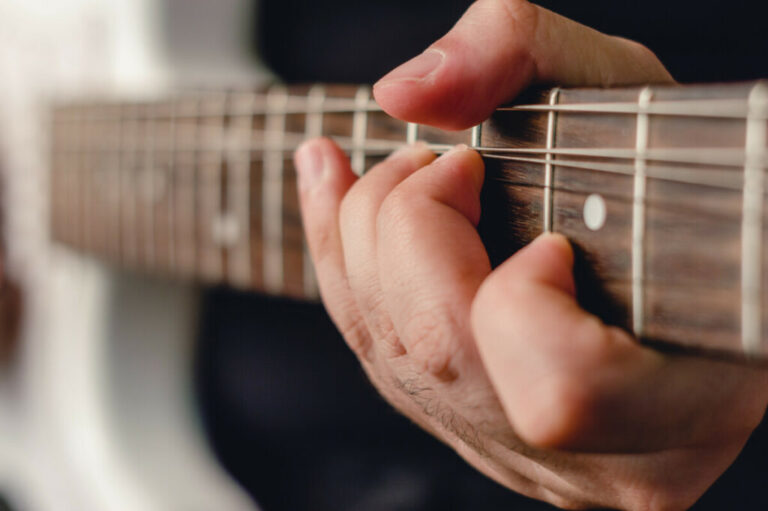How Do Guitarists Remember Songs?
Experienced guitarists have an ever-growing list of songs to play and perform. But as you spend more time in practice, that list keeps growing, often beyond the limits of human memory. Learning new songs can make it more challenging to keep in mind all the dozens of pieces’ notes, chords, lyrics, and strumming patterns. How can guitarists remember songs?
Guitarists use a combination of rote memorization, muscle memory, and familiarity with chords and melodies to remember songs. Through practice, experienced guitarists develop an intuition for notes and melodies and predict the next step in a piece.
Though remembering an entire setlist of 30-40 songs may seem like an impossible task, it does not have to become overwhelming. Seasoned guitarists will use several tricks and techniques to guide their way through a song without necessarily memorizing every note.
Practice Makes Perfect When Remembering Music
Practice is the first and most essential part of every guitarist’s life. Spending focused time every day on practical skills is what elevates a guitarist in every area. This fact does not only apply to guitarists but practically any skill that takes time to develop.
- Just like the muscles of your fingers need to learn chord shapes and progressions, your memory is a muscle that needs to be worked out too.
- Repeatedly practicing songs helps strengthen your mind and allows your memory to expand and hold more.
Before you know it, the time you spend practicing will pay off, and your body will automatically remember everything you did during previous practice sessions.
But what happens when your repertoire of songs is not feasible to practice every day? You cannot spend three hours every day going over 30+ pieces. But even practicing a song every few days will keep it fresh in your mind. Keeping track of when you have practiced certain songs will make it easier to notice which songs need more attention.
It can also be helpful to write out some basic notation on each song. The memo does not have to be complex or detailed, especially if you are the only one reading it. But a “cheat sheet” that you can refer back to with the key, chords, and tabs, or other relevant information will strengthen your memory for that song. Like taking notes in school, taking notes while playing guitar can help you retain information for future performances.
Here are some additional tips:
Confidence is Key When Learning Music
Thoroughly practicing a song helps keep it in your memory and also boosts your confidence when playing. While the connection may not seem obvious, confidence with a piece makes it much easier to play and remember. Similarly, guitarists with an understanding of guitar music theory and music notation have a better sense of the natural progression of songs and become more confident in their abilities.
Studies have shown that self-confidence is directly related to improved performance, and it makes sense—when your nerves are all over the place, it is challenging to focus where it needs to be, and you are always trying to catch up to the song. But when you can trust in your muscle memory and knowledge of the melody, you can stay one step ahead, thinking about the following note instead of the last one.
The next time you feel a lack of confidence, ask yourself some probing questions:
- Have I been practicing enough each day?
- Have I seen noticeable improvements after practicing a song?
- What can I do to make my next practice session more effective?
Musicians can also build confidence by practicing or playing with other musicians. Beginning guitarists can lack confidence because they compare themselves to Jimi Hendrix or Eric Clapton, but with another person, you can see how competent you can be as a guitarist. Playing with other musicians will make it clear how a song will feel in a group setting and allow you the space to build off the skills of others.
A Guitarist’s Intuition Helps Them Learn The Music
Perhaps the most extensive bolster to self-confidence when playing guitar is to develop an “ear” for notes, chords, and melodies. If you can hear the guitar part you plan to play and how it translates into the strings, the chords and riffs will fall into place, and you can focus your attention on other aspects of the song.
Another helpful tool is a basic understanding of music theory. Knowing the details of scales and chord formations can make the song come together smoothly in your head.
If you understand these facets of playing guitar, the song will feel like a natural progression, like a mnemonic device. The human brain picks up on patterns, so as much knowledge of the inherent practices in music will only help you remember more.
Speaking of patterns, keep an eye out for unique progressions in the song that set it apart from other similar pieces. When practicing, consider starting from these spots to kickstart your brain into the heart of the song. These patterns will create a foundation for playing the music in the future, as something to remember in dozens of other songs.
Guitarists Have Finite Brainpower When Remembering Music
When trying to remember many songs, it is natural to forget elements or even whole songs. Remember, the human brain does not have infinite storage. That is why it is often necessary to prioritize which information gets to stay and which is left by the wayside.
If you are performing an upcoming set with 15 songs, do not try to retain the details for 30+ just because you may play them in the future. Focus solely on those 15, and come back to the others when necessary. You may have to work a little harder on them in the future, but you will not regret knowing that setlist well when the time comes.
Memorizing songs is analogous to learning a language. Daily practice is good, but you will start mixing Russian verbs with Spanish nouns if you try to learn multiple languages at once. You do not want to combine the chord progressions from two different songs or play the riff to one in the middle of another. Keep your attention focused on only the most relevant pieces, so you do not overwhelm your brain.
What About Solos?
These tips may be helpful for chord progressions and basic riffs, but guitar solos are a much more complicated endeavor. How do guitarists remember every note in the solos of a dozen songs?
The short answer is that guitarists do not remember every note:
- Most live performances have slightly different solos than their recorded counterparts.
- When a guitarist performs a solo, they use their knowledge of the song and musical intuition to craft a unique solo on stage.
However, in some situations, it is necessary to memorize a solo note for note. In those cases, it is best to slow down and take time with each note. Remember that human memory is limited—you will only be able to keep a certain amount of information in your head at any time. Guitarists have to prioritize which riffs to keep in the forefront and what can be improvised or felt.
Conclusion
Music is an art form. Of course, talent grows through practice and dedication, and there are techniques and practical tools to learn that can help. But sometimes, you have to let the feeling of the music express itself through you. Using your intuition as a musician will give you more freedom and confidence in your playing.
With a bit of confidence and music knowledge, those long setlists that seemed daunting at first can become a walk in the park. Stay passionate about the music, and everything else will follow.








